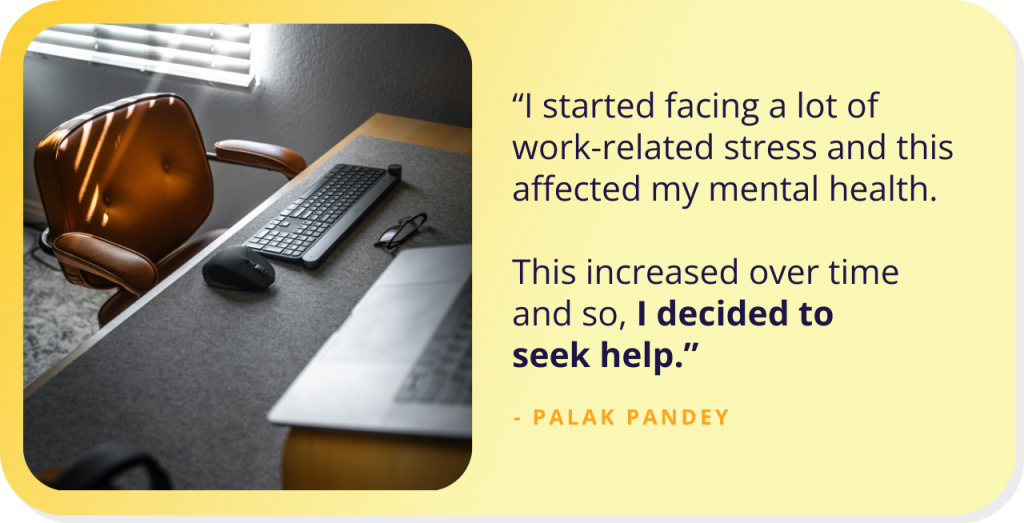
Beating Generosity Burnout as Women

When we were kids, do you remember our mothers juggling a myriad of tasks from dawn to dusk? If she was working, then the tasks increased twofold. Cooking for an entire family, taking care of the older members of the household, grocery shopping, cleaning the house, official work, etc., are just some of the tasks on the top of our heads. According to BBC, data shows that stress and burnout are affecting more women than men, particularly working mothers.
Therefore, people, especially women, have an ingrained perception that they should keep giving tirelessly, and it is normal. But is this really how it’s supposed to be?
Being generous is good and we are taught that skill by our parents from childhood. But is extreme generosity beneficial? It’s something that needs to be discussed thoroughly. Even though being generous and kind are absolutely necessary personality traits, being overly generous is harmful to mental and emotional well-being. Being an over-giver often comes from a place where the person expects other people to reciprocate the effort, but most times it doesn’t happen and they start falling apart. There are many other causes of generosity burnout and let’s look at a few of them.
Causes
Generosity burnout is something that 4 out 5 women face in their life. High societal expectations, disregard for personal boundaries and negligence of emotional well-being are some of the broad reasons for this. The rest of the causes can be as follows:
- Excessive caregiving mentality: Women are wired from childhood to be caregivers of the family no matter what. This deep social conditioning remains a personality trait for most women and becomes a reason for burnout over time. The best example of this is Monica, from FRIENDS. She is the mother of the group and even if she’s sick, she has the uncontrollable urge to please everyone and take care of them regardless of her health.
- Workplace dynamics: At workplaces, women often feel the need to achieve the next level of perfectionism in their tasks and work to prove themselves. They might volunteer for extra tasks and work overtime to prove their value, which leads to workload imbalance and burnout.
- Expectations and lack of reciprocity: Even in this 21st century, society has placed all the burden of caregiving on the shoulders of women. They are supposed to be there for anyone at any point in time, without wanting anything in return. Constantly giving, without receiving adequate support can lead to feelings of unhappiness and undervaluation.
Common symptoms
Though symptoms of burnout can be different in each person, some of these common symptoms can be used to identify burnout in women.
- Emotional exhaustion: Feeling drained, tired, or overwhelmed due to constantly taking care of other’s emotional needs is a common symptom. It can also be accompanied by decreased satisfaction and unhappiness that leads to questioning one’s value or worthiness. It can also make way for resentment towards the recipient of your generosity and mistreatment.
- Physical symptoms: Experiencing physical signs of stress like lack of sleep, headaches, muscle tension, etc., can be expected. Withdrawing from social gatherings, being quiet, and procrastinating tasks that were done easily before, are also seen.
- Disturbances in mental well-being: Lack of empathy, increased irritability, decision fatigue, feelings of being trapped, neglecting self-care, etc., are some symptoms that affect the mental well-being of a person. This can cause extreme discomfort and would lead to further deterioration of mental health if not recognised soon.
Recognising these symptoms can help mitigate the effects of burnout, with the help of setting boundaries, taking care of one’s needs, and seeking support.
Prevention and recovery
Taking care of others without neglecting oneself is crucial, especially for women prone to generosity burnout. The key is to find a balance. Start with setting firm boundaries to keep from taking on too much and carve out time for activities that refill your energy tank like thinking exercises or your favourite hobbies. Having friends or family to lean on for both emotional and practical support can be a game changer. It’s also important to keep your goals realistic; you can’t do everything without paying a price in terms of your well-being.
And despite this, if burnout sneaks up on you, the first step is to acknowledge it. Permit yourself to take a breather, focusing on rest and activities that make you feel good. Treat yourself with the same kindness you extend to others and remember all the hard work you’ve put in. Sometimes, speaking with a professional can make a world of difference. By following these steps, you strike a balance between being there for others and taking care of yourself, which is essential in avoiding and recovering from generosity burnout.
According to a 2021 survey by the Canadian Foundation of Women, 28% of moms say they are struggling to keep up with work demands, 27% are afraid to take time off work for fear of losing their job and 46% say it has been exhausting trying to balance work and childcare responsibilities. This happens when women are socially conditioned to juggle all their tasks at once and made to feel lesser of themselves if they don’t reach these unattainable standards. Organisations and even families should make it a priority to help members come out of these ingrained perceptions and help them overcome burnout.
Always remember, maintaining boundaries, taking care of oneself, and giving only when absolutely necessary help us become a better person, no matter what!





